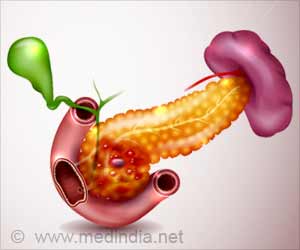Pancreatic ductal adenocarcinoma (PDAC) is the most common pancreatic cancer that is diagnosed in late stages
- Pancreatic cancer risk is nearly six times higher in people with gallbladder disease
- Pancreatic ductal adenocarcinoma (PDAC) is the most common pancreatic cancer that is diagnosed in late stages
Facts About Pancreatic Cancer
Patients with pancreatic ductal adenocarcinoma (PDAC) were six times more likely to have had gallstone disease within the year prior to diagnosis than non-cancer patients. PDAC is the most common pancreatic cancer, accounting for more than 90% of cases, and it is often fatal because it tends to be diagnosed in late stages.“Pancreatic cancer can be difficult to diagnose and then chances of survival are slim. Our findings suggest that
gallstone disease may be a way to better diagnose this type of cancer – meaning we could save more lives,
” said Marianna Papageorge, MD, lead researcher on the study and research fellow at Boston Medical Center.Link Between Gallstone Disease and Pancreatic Cancer
Using records in the SEER-Medicare database from 2008 to 2015, researchers identified 18,700 PDAC patients and compared them to an average of 99,287 patients per year from the same database.In the year before diagnosis, 4.7 percent of the PDAC patients had a diagnosis of gallstone disease and 1.6 percent had their gallbladders removed.
Among the non-cancer patients, only 0.8 percent had gallstones and only 0.3 percent had their gallbladders removal.
“
Gallstone disease does not cause pancreatic cancer
but understanding its association with PDAC can help combat the high mortality rate with pancreatic cancer by providing the opportunity for earlier diagnosis and treatment,” Dr. Papageorge said.“It is such a terrible disease, and survival is so low,” Dr. Papageorge said.
Source-Eurekalert
















